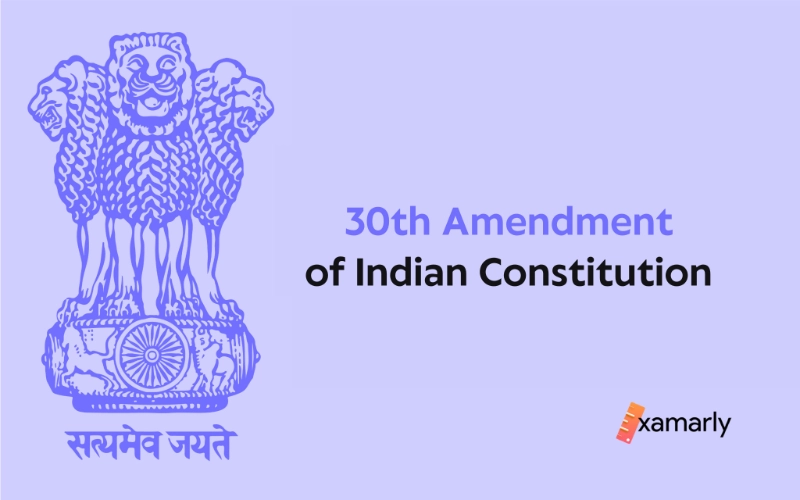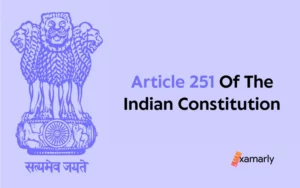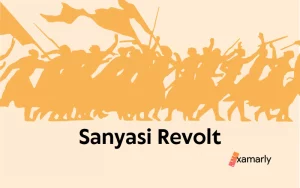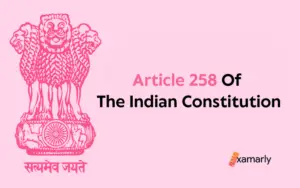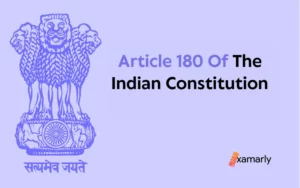The Constitution (Thirtieth Amendment) Act, 1972 amends Article 133 of the Indian Constitution. The objective of this amendment was to change the basis for appeals in civil cases before the Supreme Court of India from value criterion to one involving important legal issues.
Read this article to learn more about the 30th amendment of Indian constitution.
- 30th Amendment of Indian Constitution
- Statements of Objects and Reasons
- Provisions of the 30th Amendment of Indian Constitution
- Summary
- FAQs around 30th Amendment of Indian Constitution
- What is a civil appeal to the Supreme Court?
- What types of civil cases can be appealed to the Supreme Court?
- How does a civil appeal to the Supreme Court work?
- What is the deadline for filing a civil appeal to the Supreme Court?
- What is the standard of review for a civil appeal to the Supreme Court?
- How long does it take for the Supreme Court to decide a civil appeal?
- What happens if the Supreme Court grants review of a civil appeal?
- Can the Supreme Court's decision in a civil appeal be appealed?
30th Amendment of Indian Constitution
The 30th Amendment of Indian Constitution is officially termed The Constitution (Thirtieth Amendment) Act, 1972. It came into effect on June 9, 1972. Article 133 is modified by the Constitution (Thirtieth Amendment) Act, 1972.
The Law Commission of India is now able to put into practise the suggestions given in its 44th and 45th reports on civil appeals to the Supreme Court of India regarding certificates of fitness thanks to the passing of this Act.
- Also Read: Advisory Jurisdiction of Supreme Court.
- Important for UPSC: Tricks to Remember Amendments of Indian Constitution.
Statements of Objects and Reasons
Following are the objections & reasons stated while discussing the 30th amendment of Indian Constitution:-
- The Law Commission of India has drafted this amendment bill in an effort to put into practise the recommendations given in its Forty-Fourth and Forty-Fifth Reports on Civil Appeals to the Supreme Court of India.
- Currently, there is a right of appeal to the Supreme Court of India, among other things, based on a High Court’s certification that the sum or value of the object/matter of dispute is not less than 20,000 rupees or that the judgment, decree, or final order involves a claim or question involving property worth the same amount, directly or indirectly.
- The valuation cannot serve as the basis for an appeal right. An important question of law can arise even from modestly valued cases. There has to be a rational yardstick.
- Additionally, the value test causes matters with no merit to be appealed to the Supreme Court of India.
- Article 133(1) of the Indian Constitution should be changed to delete Clauses (a) and (b), according to the Law Commission of India.
- Furthermore, a case should only be appealable to the Supreme Court of India if the High Court certifies that it includes a substantial question of law of general importance and that, in the High Court’s view, the Supreme Court of India should settle the issue.
- By amending the article in this way, the Supreme Court of India would receive fewer appeals that lack any substance and are only submitted because the valuation criteria were met. This goal is what the 30th amendment bill aims to accomplish.
You might also like to read about the:
- Previous Amendment: 29th Amendment of Indian Constitution.
- Next Amendment: 31st Amendment of Indian Constitution.
Provisions of the 30th Amendment of Indian Constitution
Amendment of Article 133
In article 133 of the Indian Constitution, Section 2 substitutes a new clause for the existing clause (1), namely-
- “Any judgment, decree, or final order rendered by a High Court in a civil proceeding within the territory of India may be appealed to the Supreme Court of India if the High Court certifies that:
- (a)that a significant legal issue of public interest is involved in the case; and
- (b) the High Court believes that the Supreme Court of India should address the aforementioned issue.”
- According to Section 3, this Act shall affect-
- (a) any appeal pending before the Supreme Court of India as of the start of this Act under Sub-Clause (a), (b), or (c) of Clause (1) of article 133 of the Constitution; or
- (b) a High Court of India certificate issued prior to the effective date of this Act under Sub-Clause (a), (b), or (c) of Clause (1) of Article 133 may be used to support any appeal filed on or after the effective date of this Act against any judgment, decree, or final order in a civil proceeding of a High Court.
- The Supreme Court of India may analyze, hear, and decide on each of these appeals as if this Amendment Act had not been passed.
- Subject to Sub-Section (1), no appeal under article 133(1) of the Indian Constitution shall lie to the Supreme Court of India from any judgment, decree, or final order arising out of a suit or other civil proceeding that was commenced in any court prior to the effective date of this Act unless such appeal complies with the provisions of that clause as by this Amendment Act.
Read Also:
Summary
Since 9 June 1972, the 30th Constitutional Amendment has been in effect. Under this, updates were made to article 133 of the Constitution of India. The purpose of this amendment bill is to put into effect suggestions made by the Law Commission of India on civil appeals to the Supreme Court of India regarding certificates of fitness.
It also makes appeals of the civil matters, to the Supreme Court, to go through a substantial question check in order to deem it fit.
Related Article: Difference Between Civil Law and Criminal Law.
FAQs around 30th Amendment of Indian Constitution
What is a civil appeal to the Supreme Court?
A civil appeal to the Supreme Court is a legal process by which a party who has lost a case in a lower court (such as a state court or a federal circuit court) requests that the Supreme Court review the lower court’s decision and potentially reverse it.
What types of civil cases can be appealed to the Supreme Court?
The Supreme Court has the authority to review civil matters that involve federal law, constitutional issues, or disputes between two or more states. The Court may also choose to review cases that present important questions of law or conflicts among lower courts.
How does a civil appeal to the Supreme Court work?
To appeal a civil case to the Supreme Court, a party must file a petition for certiorari, which is a request for the Court to review the case. The Court will then consider the petition and decide whether to grant or deny review. If the Court grants review, the parties will submit briefs and participate in oral argument before the Court issues a final decision.
What is the deadline for filing a civil appeal to the Supreme Court?
The deadline for filing a petition for certiorari is usually 90 days after the entry of judgment in the lower court. However, there are some exceptions to this rule, such as when the case involves a federal agency or a state government.
What is the standard of review for a civil appeal to the Supreme Court?
The Supreme Court reviews civil cases on a de novo basis, which means that it reviews the case as if it were new and not bound by the lower court’s decision. However, the Court may defer to the lower court’s factual findings unless they are clearly erroneous.
How long does it take for the Supreme Court to decide a civil appeal?
The length of time it takes for the Supreme Court to decide a civil appeal varies, but it typically takes several months to a year from the time the petition is filed to the issuance of a final decision.
What happens if the Supreme Court grants review of a civil appeal?
If the Supreme Court grants review of a civil appeal, the parties will submit briefs and participate in oral argument before the Court issues a final decision. The Court’s decision may affirm the lower court’s decision, reverse it, or remand the case back to the lower court for further proceedings.
Can the Supreme Court’s decision in a civil appeal be appealed?
No, the Supreme Court’s decision in a civil appeal is final and cannot be appealed to another court. However, the Court may choose to revisit its own decisions in future cases.


